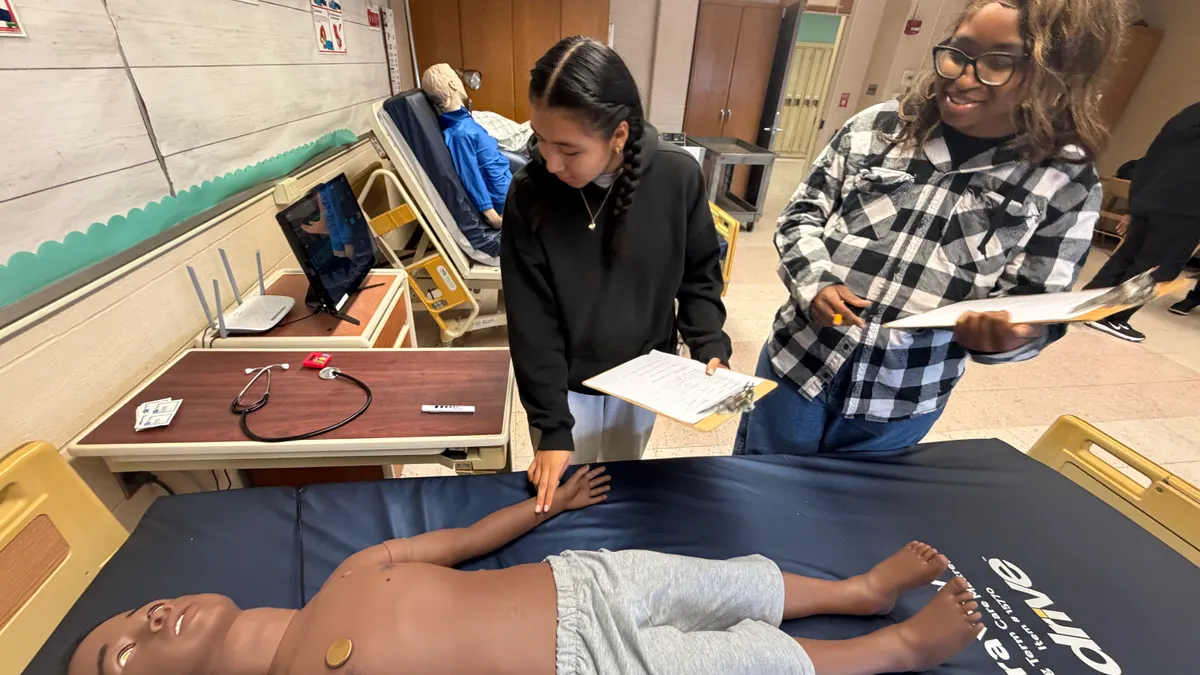Black History Month has traditionally marked a time for educators to discuss the contributions, struggles and victories of Black Americans throughout history. But curriculum policies or laws that have spread in at least 20 states are changing — either directly or indirectly — how teachers approach these matters in the classroom.
“Due to the vagueness of many of these restrictions, teachers may shy away from really important topics, such as those where racial conflict is present,” said Wesley Hedgepeth, president of the National Council for the Social Studies. These topics could include the Black Lives Matter movement, Harlem race riots, or even broader concepts such as systemic racism or White supremacy, he added.
Charlotte Walker, a longtime elementary school teacher in Virginia — one of many states with policies limiting instruction on race — says she scaled back on certain lessons "for fear of someone exaggerating my intent with it." Walker's name has been changed out of concern for retaliation from school board members.
Prior to COVID-19 and the 2020 civil rights protests, she would help students understand discrimination by separating her classes into two groups and telling each to create the longest paper chain possible. However, one group was given a better quality of supplies — such as dull scissors rather than "teacher" scissors — than the other.
The elementary school teacher, who has taught for over a decade, conducted this lesson for years without an issue. But after a colleague recently received pushback from a school board member for including culturally diverse library books, she's scrapped the lesson.
"I'm not building on our state standards at all anymore, because sometimes just doing things that are best practice in the field has felt like a risk," Walker said.
While over a dozen mostly conservative-leaning states have enacted some form of curriculum restrictions, these practices have also spread to districts in historically liberal states. California’s Temecula Valley Unified School District, for example, is being sued after putting in place what are sometimes referred to as “anti-CRT” or “divisive concepts” policies.
As a result, nearly two-thirds of U.S. public school teachers have decided to limit instruction on political and social issues — such as topics related to race — even in states or localities where restrictions are not present, according to a survey released by RAND Corp. this month.
“African American and Black history is not immune,” said Hedgepeth. Some teachers are even hesitant to teach about individuals, events or ideas that are explicitly mentioned in state standards, he said, citing an example of an elementary school teacher who reportedly “feared not being able to teach the truth” about Rosa Parks.
The trend of teachers scaling back on race-related instruction and discussions comes despite a majority of Black students and nearly half of all students nationwide saying they want to learn that the legacy of slavery continues to impact the experience of Black people today, according to a Pew survey released this week.
“Censorship deprives our students of the truth,” Hedgepeth said. “They see the truth happening all around them, and when teachers aren't supported and are censored, we lose credibility.”
Teachers need support from district leaders
In fact, 55% of teachers in places without any restrictions who still decided to limit instruction about political and social issues primarily cited a lack of guidance from school or district leaders as their driving factor.
“Many educators are placed under extreme pressure, and opposing restrictions on those freedoms is courageous,” said Kasey Meehan, a program director at PEN America, which advocates for free speech. “Black history is American history and worth honoring and celebrating.”
Hedgepeth suggests that all district leaders, but especially those in places where there are restrictions, should provide clear guidance for teachers on what they are allowed to teach when it comes to identity. That includes not just issues related to Black individuals, but also others like LGBTQ+, Muslim and Jewish people.
Educators should also keep in mind that teaching Black history is much more than discussing slavery and its ongoing impact on society today.
“Teaching of Black joy is an essential and often overlooked aspect of Black history,” Hedgepeth said, adding that “by integrating stories of Black joy into our teachings, we provide a more nuanced and holistic view of history that empowers all students to appreciate the richness of Black culture.”
Ongoing change for African American history curriculum
Stories of teachers feeling they have to censor information in the classroom related to the Black experience in America during Black History Month come after a handful of more high-profile debacles related to those issues.
In Florida, for example, the board of education last year approved controversial African American history state standards that critics described as presenting “Whitewashed” and “sterilized” accounts of the past.
While leaders said it included “the good, the bad and the ugly in American history,” those who objected said the standards didn’t identify “racism” by name, excluded some of the Founding Fathers’ pro-slavery views, and claimed slaves incited violence during massacres.
Earlier last year, the College Board also came under fire for changing its AP African American Studies course after Florida education leaders and Gov. Ron DeSantis claimed it lacked educational value.







 Dive Awards
Dive Awards











